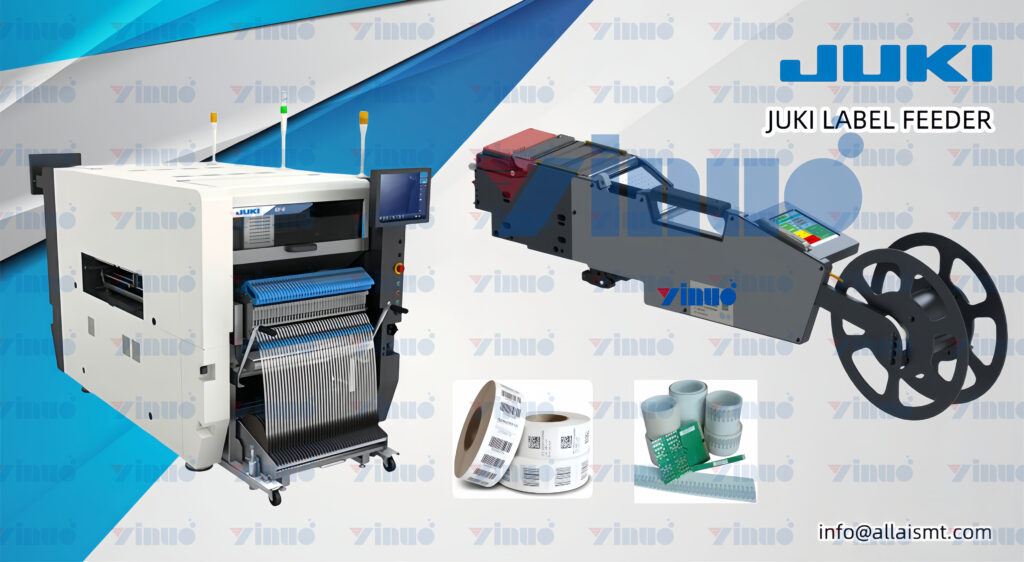How Label Feeders Contribute to Smart Manufacturing
Smart manufacturing represents a transformative shift in the production landscape, characterized by the integration of advanced technologies such as the Internet of Things (IoT), artificial intelligence (AI), and robotics. One crucial element within this ecosystem is the label feeder, a device used to automate the application of labels on products and packaging. Label feeders play a significant role in enhancing efficiency, accuracy, and overall productivity, making them a vital component in smart manufacturing. This article explores how label feeders contribute to smart manufacturing and the benefits they bring to modern production processes.
The Role of Label Feeders in Smart Manufacturing
Label feeders are essential in various industries, including electronics, pharmaceuticals, food and beverage, and consumer goods. They ensure precise and consistent labeling, which is crucial for compliance, brand integrity, and traceability. In the context of smart manufacturing, label feeders offer several advantages:
- Automation and Efficiency: Smart manufacturing emphasizes automation to streamline processes and reduce manual intervention. Label feeders automate the labeling process, significantly increasing speed and efficiency. This automation minimizes human error, reduces labor costs, and boosts production rates.
- Data Integration and Analytics: Modern label feeders are equipped with sensors and connectivity features that enable real-time data collection and integration with other smart manufacturing systems. This data can be analyzed to monitor performance, detect anomalies, and optimize processes. Insights gained from data analytics help manufacturers make informed decisions and continuously improve their operations.
- Precision and Consistency: Consistent and accurate labeling is essential for maintaining product quality and meeting regulatory standards. Label feeders ensure that each label is applied precisely, reducing the risk of misaligned or incorrect labels. This precision enhances product appearance and helps in maintaining traceability throughout the supply chain.
- Flexibility and Adaptability: Smart manufacturing requires flexibility to accommodate varying production demands and product types. Label feeders can be easily programmed and adjusted to handle different label sizes, shapes, and application speeds. This adaptability allows manufacturers to switch between products quickly and efficiently, reducing downtime and increasing overall productivity.
Integration with Smart Manufacturing Technologies
Label feeders integrate seamlessly with various smart manufacturing technologies, creating a cohesive and efficient production environment. Here are some key integrations:
- IoT Connectivity: IoT-enabled label feeders can communicate with other devices and systems on the production floor. This connectivity allows for real-time monitoring, remote diagnostics, and predictive maintenance. IoT integration ensures that label feeders operate optimally and reduces the likelihood of unexpected downtime.
- AI and Machine Learning: AI and machine learning algorithms can analyze data collected from label feeders to identify patterns and optimize performance. For example, AI can predict when a label feeder might require maintenance or adjustment, preventing disruptions before they occur. Machine learning can also improve the accuracy of label placement by continuously refining the process based on historical data.
- Robotic Automation: Label feeders can be integrated with robotic arms and conveyors to create fully automated production lines. Robots can handle the precise placement of products for labeling, while conveyors transport items seamlessly between different stages of the production process. This integration enhances speed, reduces manual handling, and ensures consistent labeling.
- Digital Twin Technology: Digital twins are virtual replicas of physical assets that provide real-time insights into their performance. Label feeders can be modeled as digital twins to simulate their operation, predict potential issues, and optimize settings. This technology enables manufacturers to fine-tune their labeling processes and achieve higher efficiency.
Benefits of Label Feeders in Smart Manufacturing
The integration of label feeders into smart manufacturing offers several benefits:
- Enhanced Productivity: Automation and precision labeling increase production speed and reduce errors, resulting in higher throughput and productivity.
- Cost Savings: Reduced labor costs, minimized waste, and optimized maintenance schedules lead to significant cost savings over time.
- Improved Quality: Consistent and accurate labeling ensures product quality and compliance with regulatory standards, enhancing brand reputation and customer satisfaction.
- Real-Time Insights: Data collected from label feeders provides valuable insights into production performance, enabling manufacturers to make data-driven decisions and continuously improve their processes.
- Scalability and Flexibility: Label feeders can be easily adapted to handle different products and production volumes, making them suitable for both small-scale and large-scale manufacturing operations.
Conclusion
Label feeders play a pivotal role in the advancement of smart manufacturing by automating the labeling process, integrating with other smart technologies, and providing real-time data insights. Their contribution to increased efficiency, precision, and flexibility makes them indispensable in modern production environments. As smart manufacturing continues to evolve, label feeders will remain a key component in driving innovation, improving productivity, and maintaining competitive advantage in the manufacturing industry.

